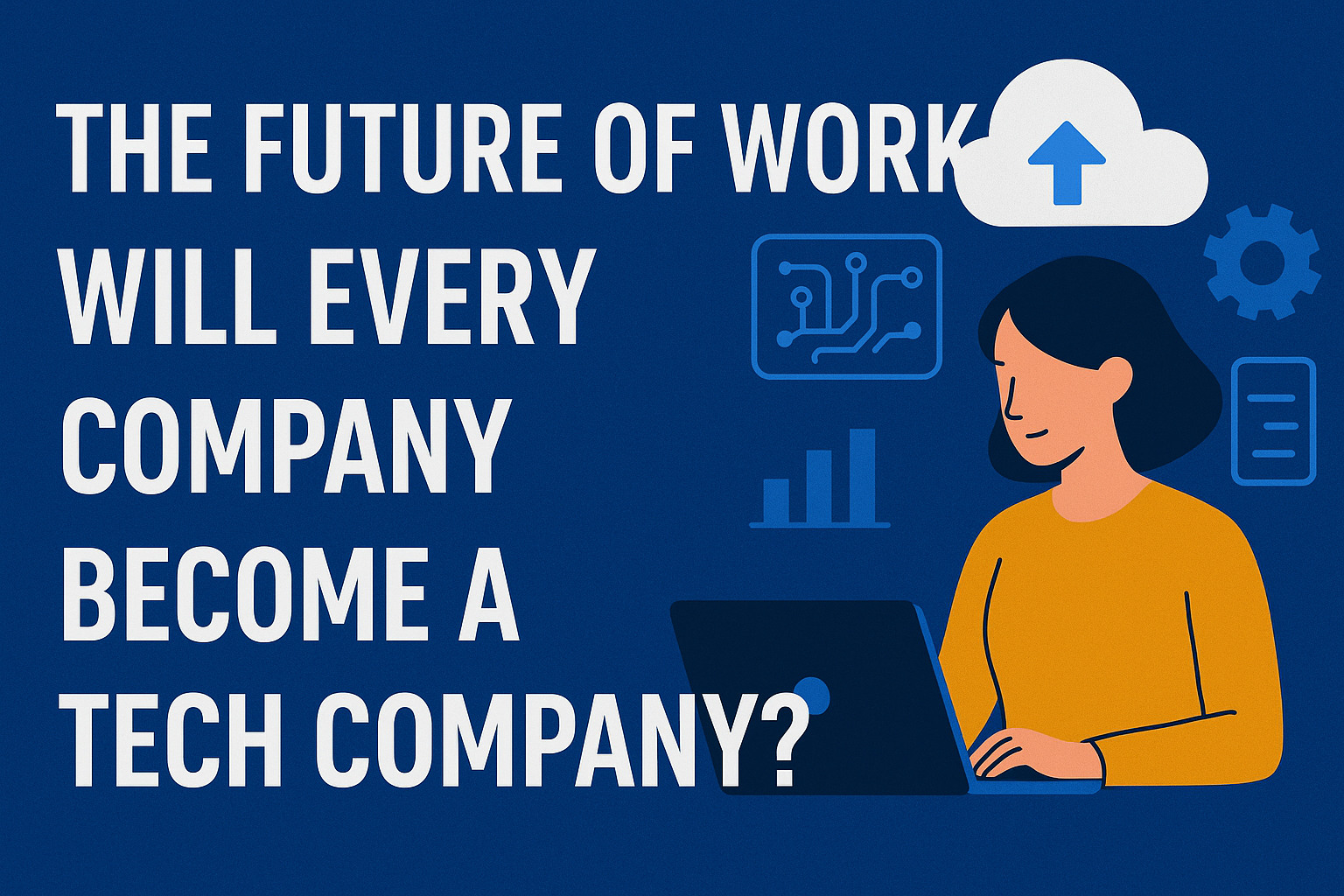The Future of Work: Will Every Company Become a Tech Company?
The future of work is evolving at an unprecedented pace, driven by rapid technological innovation and changing market demands. Businesses across industries are embracing digital transformation to stay competitive. As automation, artificial intelligence (AI), cloud computing, and data analytics become essential tools, one question emerges: Will every company become a tech company?
Technology as the Core of Business Strategy
Technology is no longer a supporting function—it is the backbone of modern enterprises. From retail and healthcare to agriculture and logistics, organizations are investing in cloud platforms, AI-driven analytics, and automation tools to streamline operations and improve efficiency.
Companies that once relied solely on traditional methods now embed technology into every layer of their business strategy. For instance, retailers use predictive analytics for demand forecasting, while healthcare providers leverage telemedicine and wearable devices to improve patient care.
The Rise of Digital-First Mindsets
Adopting a digital-first mindset is crucial for organizations aiming to thrive in the future workplace. Employees and leaders alike are expected to understand and use technology to solve complex problems. This trend is not confined to startups or IT firms—manufacturing plants employ Internet of Things (IoT) devices for predictive maintenance, and financial institutions deploy machine learning to detect fraud in real time.
By placing technology at the center of decision-making, companies can respond faster to market changes and create innovative customer experiences.
Workforce Transformation and Skill Evolution
As companies integrate technology, the workforce must adapt. Automation handles repetitive tasks, allowing employees to focus on creativity, strategy, and relationship building. Roles such as data analysts, cybersecurity experts, and AI specialists are in high demand, while soft skills like communication and problem-solving remain equally important.
To remain relevant, professionals need to upskill through online courses, certifications, and hands-on projects. Businesses that invest in training programs foster a culture of growth and resilience.
Challenges on the Road to Becoming Tech-Driven
While the benefits of technology are immense, the journey is not without challenges. Small and medium enterprises often face budget constraints when adopting advanced tools. Additionally, cybersecurity risks increase as organizations digitize their operations. A clear strategy that balances innovation with data security and regulatory compliance is essential.
Leaders must also manage the human impact of automation, ensuring employees are supported during transitions and equipped with new opportunities.
What the Future Holds
The future of work suggests that every business, regardless of size or sector, will need to embrace technology to stay competitive. This does not mean every company will become a software developer, but rather that technology will be central to their value creation. Organizations that prioritize digital skills, foster innovation, and build adaptable teams will lead in tomorrow’s economy.
Conclusion
The line between traditional businesses and technology companies is fading. In an era where customer expectations evolve rapidly and data drives decisions, technology is the common thread linking success stories across industries. The future of work is not about whether companies will adopt technology, but how effectively they can integrate it into their mission, culture, and customer experience.






